
6 Short Nonfiction Audiobooks to Expand Your Mind
Fall always makes me nostalgic for school. I see all those fresh new notebooks and unsharpened pencils, and I remember how much I love learning. Fortunately, opportunities for learning are all around us, not just in the classroom. Unfortunately, it can be a real effort to take time out of our harried schedules and take in new information, the kind of stuff that doesn’t seem especially relevant to our day-to-day existence.
Enter the short, non-fiction audiobook. I’ve collected six audiobooks, all under three hours, that will scratch your learning itch. These audiobooks cover psychology, feminism, politics, physics, and more. Some are full of facts that will have you sharing tidbits of info with friends and strangers for days. Others are books to expand your vision of the world, not just your brain. All are, to me, fascinating and mind expanding.
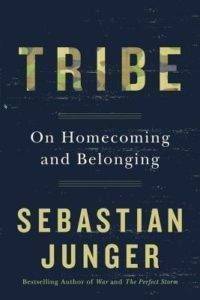
Tribe by Sebastian Junger 2:59
Sebastian Junger examines tribal societies, soldiers at war, and victims of natural disasters to illustrate how modern day society has had a detrimental effect on our sense of community, interdependence, and psychological survival. Despite the hyper-connectivity of the 21st century, we lack actual connection to our fellow man. This has created a selfishness that is often a root (if not the root) to problems as small as littering and as large as the financial crisis of 2007–2008. This book will make you question so many of our modern day values and priorities. Also, it’s full of interesting facts that will have you asking friends and nearby strangers “Did you know…?” Like, did you know that people with severe anxiety experienced a decrease in symptoms during the London Blitz? It seems counterintuitive, but the bombings caused them to focus less on themselves and day-to-day anxieties, and more on their community and general survival.
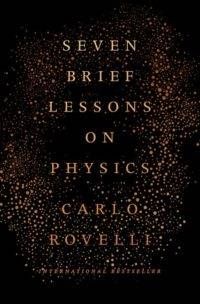 Seven Brief Lessons on Physics by Carlo Rovelli 1:45
Seven Brief Lessons on Physics by Carlo Rovelli 1:45
Talk about a “did you know…?” book. I’m not sure I’ll be able to avoid starting every sentence of this blurb with that phrase. Like, did you know gravity isn’t actually a force? And did you know time moves faster when you’re higher up? This book made me mad at my public education for all the fascinating information it left out. Newtonian physics were covered and reviewed every year, but Einstein’s Theory of Relativity? I’d heard the phrase but never knew what it entailed until I listened to this audiobook. I will say, though it clocks in at under two hours, if you’re like me you may rewind and re-listen to chapters a number of times just to make sure you caught everything.
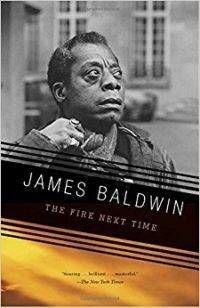 The Fire Next Time by James Baldwin 2:25
The Fire Next Time by James Baldwin 2:25
Unlike my first two recs, Baldwin’s book lacks the same “did you know…?” impulse. Instead of filling me with interesting facts, The Fire Next Time exposed me to a time and perspective I had no understanding and little awareness of. This book is part memoir of a Harlem childhood and part examination of racial injustice. James Baldwin gave voice to the growing Civil Rights Movement. And, unfortunately, much of what he mentions is still an issue today. There has been frighteningly little change to our society’s racism since the 1960s. Reading this book will increase your awareness, empathy, and conviction that something drastic must be done.
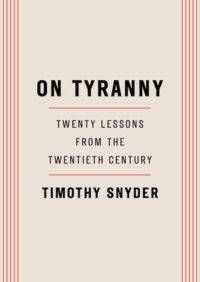 On Tyranny by Timothy Snyder 1:48
On Tyranny by Timothy Snyder 1:48
Timothy Snyder has laid out twenty brief lessons to ensure you can identify and act against tyranny. This book made me feel a weird combination of emotions. It is disconcerting to look reality in the face and admit you don’t know what is going on, but you know things are bad. It is uncomfortable to read about a young woman smuggling Jews out of Nazi Germany and wonder if you would have the courage to do the same. But it is encouraging to know you have the knowledge to identify tyranny and the tools to act against it; to know that you have the agency and ability to effect positive change. This book is so important, I hope everyone takes the two hours to read it.
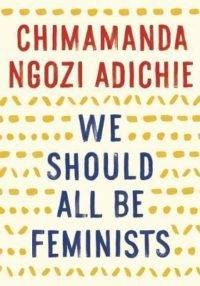
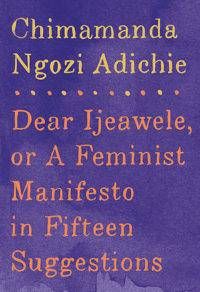 We Should All Be Feminists and Dear Ijeawele, or a Feminist Manifesto in Fifteen Suggestions by Chimamanda Ngozi Adichie :45 & 1:01
We Should All Be Feminists and Dear Ijeawele, or a Feminist Manifesto in Fifteen Suggestions by Chimamanda Ngozi Adichie :45 & 1:01
Even reading them as one, Adichie’s excellent books on feminism still clock in at well under three hours. We Should All Be Feminists is a definition of what feminism means in the 21st century, focusing on inclusion and identifying both blatant discrimination and the more subtle, institutional behaviors that work against women. Her points are clear, well-argued, and supported by personal experience. Dear Ijeawele is a set of suggestions for raising a feminist child. Witty and empowering, I’d recommended this book whether or not you’re raising a tiny feminist. Together they are a short, but powerful primer on feminism, what it is and why it is important.
Have you read any short non-fiction audiobooks lately you’d recommend?


